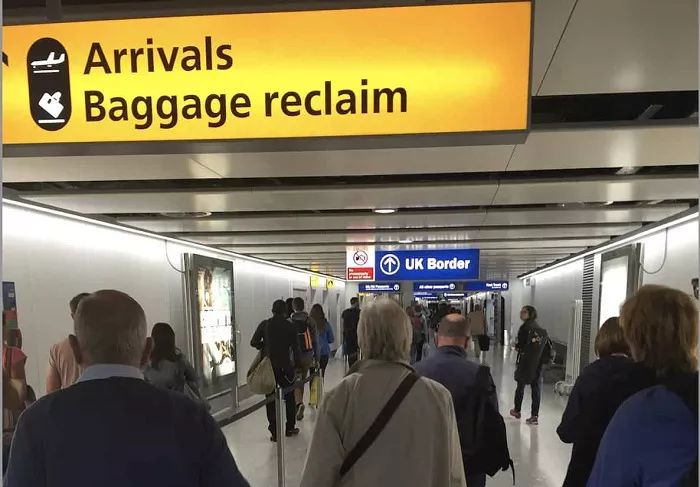London, May 7, 2025 — The UK government is reportedly preparing to introduce visa restrictions on nationals from Pakistan, Nigeria, and Sri Lanka, as part of a broader strategy to tighten immigration controls and crack down on perceived abuses of the system. The measures, first reported by The Times, are expected to form a core component of the forthcoming immigration white paper.
The countries named have been identified by government sources as having higher rates of visa overstays or asylum claims post-entry. It remains unclear whether additional countries will be included in the same category of increased scrutiny.
The anticipated policies appear to align with the Labour government’s stated intent to reduce net migration and limit what it sees as misuse of asylum routes. Individuals deemed more likely to overstay or claim asylum may face a higher risk of visa rejection under the new regime.
In addition, the Home Office is expected to tighten the rules for international graduates seeking to remain in the UK. According to reports, new requirements would mandate that graduates secure a job aligned with their degree and based on skill level, not salary, to qualify for post-study work rights.
A Home Office spokesperson told The PIE News that the forthcoming white paper would outline “a comprehensive plan to restore order to our broken immigration system.”
“To tackle abuse by foreign nationals who arrive on work and study visas and go on to claim asylum, we are building intelligence on the profile of these individuals to identify them earlier and faster,” the spokesperson added. “We will not hesitate to take action where trends threaten the integrity of our immigration rules.”
Backlash From Higher Education Sector
The news has prompted criticism from the UK’s higher education sector. London Higher, a representative body for London’s universities, warned that such measures could be seen as discriminatory and politically motivated.
“These visa restrictions run the risk of being discriminatory and could be interpreted as a kneejerk reaction to Labour’s local election losses,” the organization stated. “In an age of ‘going for growth,’ the government should be shoring up pathways for international talent, not sacrificing long-term economic benefits for political expediency.”
Universities UK International (UUKi) also expressed concern about the direction of policy. Speaking at a recent event hosted by Enroly, UUKi’s Head of Global Mobility, Charley Robinson, said the “main aim” of the white paper would be to “significantly bring down” net migration, with visa restrictions forming a key part of that strategy.
“We are expecting to see some quite tough trade-offs between the government’s economic growth goals and their migration policy priorities,” said Robinson, adding that the Treasury is likely assessing the economic impact of each proposed change.
She confirmed that the graduate visa is under renewed scrutiny, despite a 2024 review by the Migration Advisory Committee (MAC) that recommended its continuation.
“Nothing is out of scope,” Robinson warned.
Concerns Over Impact on Student Numbers
The higher education sector has raised concerns that tightening immigration rules could severely impact international student enrolments, which are already declining. Recent figures show a drop of 30,000 international students year-on-year, with the total enrolment falling to 730,000 in the 2023/24 academic year. Postgraduate students continue to dominate, making up nearly 60% of all international enrolments.
London Higher emphasized the broader implications of the expected restrictions, urging the Home Office to collaborate with other departments to strike a balance between immigration enforcement and economic growth.
“We strongly urge the Home Office to work with the Department for Education, the Treasury, and the Department for Science, Innovation and Technology to recognize the substantial benefits international students bring to our communities and economy,” it said.
Pressure on Starmer Government to Act Tough
Immigration remains a deeply polarizing issue in UK politics. With the Labour government under pressure following significant gains by the anti-immigration Reform Party in recent local elections, Prime Minister Keir Starmer is widely expected to adopt a firmer stance.
Calls from the education sector to remove international students from net migration figures have gained little traction with policymakers. At The PIE Live Europe conference in March, MAC Chair Brian Bell dismissed the idea outright.
“People should stop wasting their time asking for international students to be taken out of migration statistics,” Bell said. “It’s not going to happen.”
The immigration white paper is expected to be published in the coming weeks, laying out the government’s roadmap for reducing net migration and reshaping the
Related topics:
- Nationwide Protests Erupt in Germany Over Immigration and Ukraine Support
- Top 5 Immigration Changes from Trump’s First 100 Days
- Could Australia See Another Immigration Amnesty?


